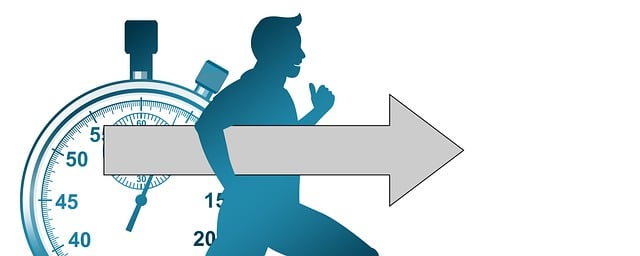UK Academic Journals Translation Services play a crucial role in global knowledge exchange, ensuring accurate and culturally sensitive translations of scholarly works. By prioritizing conceptual fidelity over literal translations, these services facilitate international collaboration and maintain research integrity. Employing advanced tools, subject expert reviews, and rigorous quality assurance, they meet the stringent demands of academic publishing, catering to a worldwide audience.
In the global academic landscape, ensuring accurate translations is paramount for knowledge exchange. This article explores critical aspects of translation quality, particularly focusing on UK academic journals. We delve into the importance of precision in academic texts, highlighting how professional translation services play a pivotal role in maintaining integrity. Key factors influencing comprehension are examined, along with strategies to tackle common challenges. Additionally, best practices for consistent accuracy in literary works across languages are presented, emphasizing the value of expert translation services for UK academic journals.
- Understanding the Importance of Precision in Academic Translations
- The Role of Professional Translation Services for UK Academic Journals
- Ensuring Quality: Key Factors in Comprehensible Translations
- Common Challenges in Academic Journal Translations and How to Overcome Them
- Best Practices for Maintaining Accuracy and Consistency in Literary Works
Understanding the Importance of Precision in Academic Translations

In the realm of academic research and scholarly communication, precision in translations is of paramount importance. When it comes to UK academic journals and their international audience, accurate translations are essential for knowledge exchange and intellectual discourse. Even a minor error or misinterpretation can lead to significant consequences, impacting the integrity of research findings and potentially hindering progress in various fields.
Translation services that cater to academic journals must embrace meticulous attention to detail. They should employ language experts capable of navigating complex terminology specific to diverse disciplines. Ensuring cultural sensitivity and conceptual accuracy is crucial when translating scholarly works. UK Academic Journals Translation Services should strive to deliver not just word-for-word translations but precise interpretations that maintain the original meaning, ensuring a seamless flow of knowledge across languages.
The Role of Professional Translation Services for UK Academic Journals

In the realm of academic discourse, precision and clarity are paramount, especially in publications like UK Academic Journals. This is where professional translation services play a pivotal role, ensuring that scholarly works transcend linguistic barriers with accuracy and nuance. These services employ language experts well-versed in both the source and target languages, enabling them to capture the original text’s intent, context, and subtleties.
For academic journals aiming for global reach, professional translation is not just an option but a necessity. It guarantees that research findings, theories, and discussions are accessible to a diverse readership worldwide, fostering international collaboration and knowledge exchange. UK Academic Journals Translation Services, in particular, must adhere to stringent quality standards, utilizing advanced tools and human expertise to deliver translations that meet academic rigor and publishing standards.
Ensuring Quality: Key Factors in Comprehensible Translations

Ensuring high-quality translations is paramount, especially for academic content aimed at UK journals. Beyond simple word-for-word substitutions, effective translation involves understanding the context, tone, and nuances of both languages. Professional translators must possess expertise in their fields to accurately convey complex ideas and maintain the integrity of the original work.
UK Academic Journals Translation Services often employ rigorous quality assurance processes. These may include peer review by subject matter experts, proofreading, and editing to guarantee precision and fluency. Additionally, staying abreast of industry best practices and utilizing advanced translation technologies ensures that translations meet the highest standards required in the academic publishing landscape.
Common Challenges in Academic Journal Translations and How to Overcome Them

Academic journal translations present unique challenges due to their technical and linguistic nuances. A common pitfall is maintaining scientific accuracy while ensuring grammatical fluency in different languages, as direct translation can sometimes lead to awkward phrasing or even loss of intended meaning. Another hurdle is keeping up with specialized terminology used across various disciplines; professional translators must have a deep understanding of both the source and target fields to deliver precise translations.
To overcome these challenges, reputable UK Academic Journals Translation Services employ several strategies. They rely on experienced linguists specializing in academic writing who can accurately translate complex concepts. These services also utilize advanced technologies like translation memory software to ensure consistency across documents and maintain terminological coherence. Additionally, peer review by subject experts ensures the accuracy and quality of translations before delivery, guaranteeing that the final product meets the stringent requirements of academic publications.
Best Practices for Maintaining Accuracy and Consistency in Literary Works

Maintaining accuracy and consistency is paramount when translating literary works, especially for UK academic journals aiming to reach a global audience. A meticulous approach ensures that the essence and nuances of the original text are preserved. Translation services should employ qualified linguists who not only possess expertise in both languages but also understand the cultural context.
Best practices include thorough research into idiomatic expressions and colloquialisms to avoid literal translations that might lose their intended meaning. It is crucial to maintain a consistent style, tone, and register throughout the work. Using terminology specific to the academic field ensures clarity for the target audience. Regular reviews and comparisons with the source text by subject matter experts can help identify any discrepancies or improvements needed in the translation process.
Accurate and comprehensive translations are paramount in the realm of UK academic journals, ensuring that scholarly works transcend linguistic barriers while preserving their integrity. By leveraging professional translation services and adhering to best practices, researchers can navigate the complex landscape of academic communication effectively. Understanding the nuances of precision, quality control measures, and overcoming common challenges are essential steps towards fostering a vibrant tapestry of global knowledge exchange, enhancing the impact of literary works across borders. UK academic journals translation services play a pivotal role in this process, revolutionizing access to critical research for an international audience.
